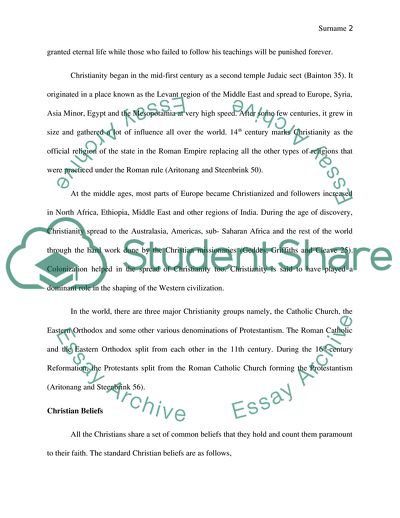Cite this document
(History of Christianity Report Example | Topics and Well Written Essays - 1500 words - 2, n.d.)
History of Christianity Report Example | Topics and Well Written Essays - 1500 words - 2. https://studentshare.org/religion-and-theology/1859991-christianity
History of Christianity Report Example | Topics and Well Written Essays - 1500 words - 2. https://studentshare.org/religion-and-theology/1859991-christianity
(History of Christianity Report Example | Topics and Well Written Essays - 1500 Words - 2)
History of Christianity Report Example | Topics and Well Written Essays - 1500 Words - 2. https://studentshare.org/religion-and-theology/1859991-christianity.
History of Christianity Report Example | Topics and Well Written Essays - 1500 Words - 2. https://studentshare.org/religion-and-theology/1859991-christianity.
“History of Christianity Report Example | Topics and Well Written Essays - 1500 Words - 2”. https://studentshare.org/religion-and-theology/1859991-christianity.


